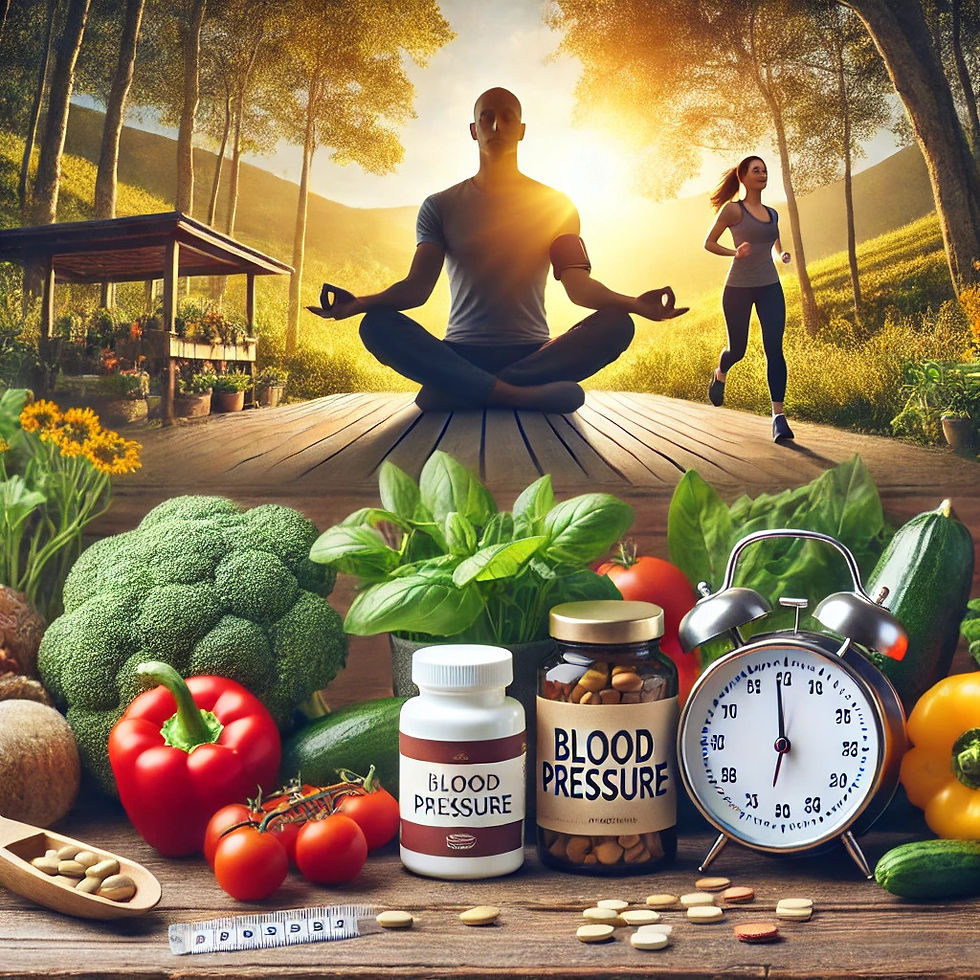TOP 12 SUPPLEMENTS FOR ANXIETY & DEPRESSION
- Dr Charles Glassman

- Jan 5, 2024
- 2 min read
Updated: Jan 16, 2024

In the realm of mental health treatment, the ease of prescribing medication often overshadows alternative approaches. As a physician, I've seen a tendency to prioritize prescriptions over delving into a patient's life story or exploring non-pharmaceutical interventions. Yet, the world of over-the-counter supplements offers promising avenues, backed by clinical studies, for various mental health issues.
1. L-methylfolate
Depression is linked with folate deficiency; depression can be mitigated with L-methylfolate supplementation. Unlike folic acid, which requires conversion, L-methylfolate directly supports the production of mood-regulating neurotransmitters.
2. SAMe (S-adenosyl-L-methionine)
It is Naturally occurring. SAMe boosts brain chemicals involved in mood regulation. It can be as effective as some antidepressants and is particularly useful for those who don't respond to traditional medication.
3. Omega-3 fatty acids
They are essential for brain health. Omega-3s, especially DHA, show promise in treating depression, bipolar disorder, and ADHD. They improve symptoms of depression and cognitive functions, offering a natural approach to mental health care.
4. St. John's Wort
For mild to moderate depression, St. John's Wort is a valuable herb. It's comparable to prescription antidepressants but requires careful consideration due to potential drug interactions.
5. 5-HTP
As a serotonin precursor, 5-HTP has shown benefits in improving depression symptoms, sometimes matching the efficacy of antidepressant therapy.
6. Valerian Root
Known for aiding sleep and reducing anxiety, its effects build up over time, making it a gentle yet effective supplement.
7. L-Theanine
It is found in green tea and promotes relaxation without drowsiness, aiding in stress management and sleep issues.
8. Lemon balm
It is effective for stress, anxiety, and sleep problems. Lemon balm has been shown to improve mental calmness and sleep quality.
9. Passionflower
Passionflower is effective in reducing anxiety symptoms, making it a valuable supplement for stress-related disorders.
10. Lavender
Lavender, known for its calming properties, is beneficial for anxiety and sleep disturbances.
11. GABA
As an inhibitory neurotransmitter, GABA supplementation may assist in reducing anxiety and improving sleep quality.
12. Melatonin
Melatonin can be a valuable aid for sleep disorders and jet lag, effectively regulating sleep-wake cycles.
******
Before starting any supplement regimen, consulting with a healthcare professional is crucial. Integrating these supplements with lifestyle changes and mindfulness practices can lead to more effective mental health management.
For more insights into managing mental health, visit 20 ways to reduce stress and anxiety.
© Dr. Charles F. Glassman, CoachMD
Information is primarily sourced from MedlinePlus.




Comments